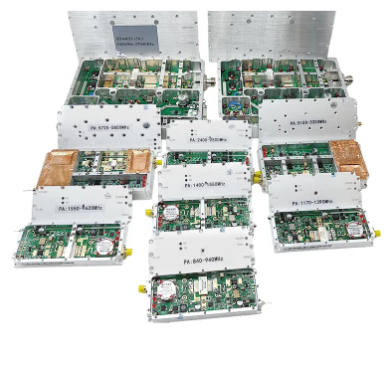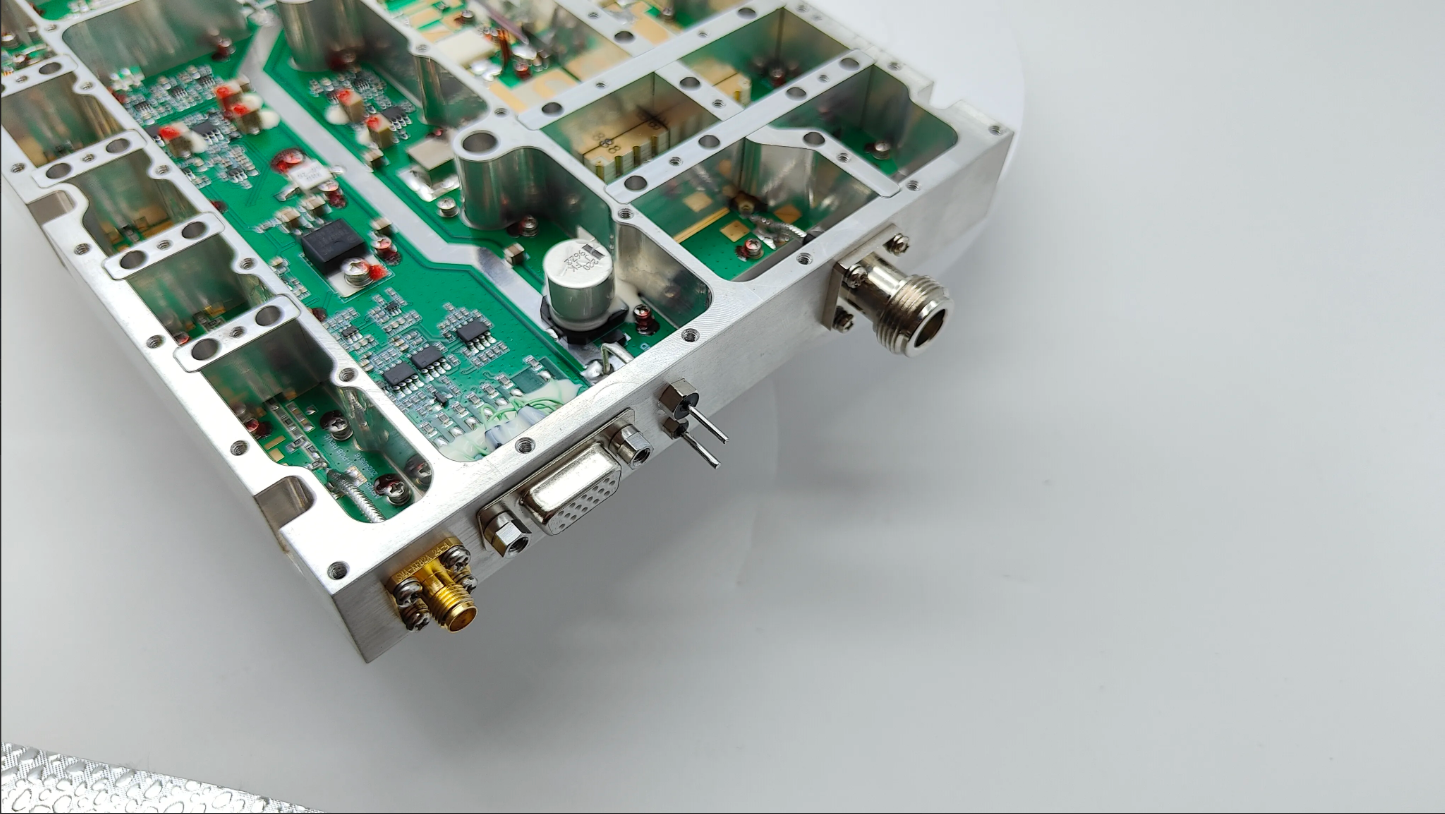Розуміння ключової ролі ВЧ підсилювачів потужності в сучасних комунікаціях
Усилители радиочастотної потужності є основою сучасних систем зв'язку, відіграючи вирішальну роль у забезпеченні чіткої та надійної передачі сигналів. Ці складні електронні компоненти підсилюють радіочастотні сигнали до необхідних рівнів потужності для ефективного бездротового зв'язку, що робить їх незамінними в усьому — від мобільних телефонів до супутникових систем. Їхній дизайн і оптимізація безпосередньо впливають на якість, ефективність і надійність бездротових комунікацій, якими щодня користуються мільярди людей.
Складну взаємодію між підсилювачами потужності РЧ і цілісністю сигналу не можна переоцінити. Оскільки безпровідні технології продовжують розвиватися та вимагають вищої швидкості передачі даних і кращої продуктивності, виклики у проектуванні підсилювачів потужності РЧ стають дедалі складнішими. Інженери мають ретельно поєднувати кілька факторів, у тому числі ефективність використання енергії, лінійність, смугу пропускання та теплове управління, щоб досягти оптимальної цілісності сигналу.
Основні аспекти проектування підсилювачів потужності РЧ
Ефективність використання енергії та теплове управління
Ефективність підсилювачів потужності РЧ безпосередньо впливає на загальну продуктивність систем зв'язку. Вища ефективність означає, що менше енергії втрачається у вигляді тепла, що призводить до подовження терміну роботи батареї мобільних пристроїв і зменшення витрат на експлуатацію базових станцій. Сучасні підходи до проектування зосереджені на передових підсилювачах класу F та класу E, які можуть досягати рівня ефективності понад 70%.
Термокерування відіграє ключову роль у підтриманні стабільної роботи та запобіганні погіршенню продуктивності. Інженери впроваджують складні рішення охолодження, включаючи радіатори, термовиводи та передові матеріали для корпусування, щоб забезпечити оптимальний контроль температури. Ці термічні аспекти стають ще важливішими в застосуваннях з високим енергоспоживанням, де відведення тепла може суттєво вплинути на цілісність сигналу.
Лінійність та контроль спотворень
Лінійність є першочерговою для збереження цілісності сигналу протягом усього процесу підсилення. ВЧ-підсилювачі потужності мають точно відтворювати вхідні сигнали, одночасно мінімізуючи спотворення, які можуть пошкодити дані та заважати сусіднім каналам. Передові методи лінійного перетворення, такі як цифрове попереднє спотворення (DPD) і корекція за допомогою прямого зв’язку, допомагають досягти необхідних показників лінійності для сучасних комунікаційних стандартів.
Інтермодуляційні спотворення створюють особливу проблему в багаточастотних системах. Інженери використовують різноманітні методи, у тому числі точне встановлення зміщення та оптимізацію навантаження, щоб звести до мінімуму ці небажані ефекти. Застосування методів лініаризації має бути збалансованим з метою ефективності використання енергії, адже висока лінійність часто вимагає роботи підсилювача нижче його максимальної ефективності.

Сучасні методи оптимізації для підвищення продуктивності
Інтеграція обробки цифрового сигналу
Сучасні радіочастотні підсилювачі потужності все більше покладаються на складні методи цифрової обробки сигналів (DSP) для оптимізації продуктивності. Алгоритми DSP можуть компенсувати різноманітні спотворення, у тому числі ефекти пам'яті та теплові зміни, забезпечуючи стабільну якість сигналу в різних умовах експлуатації. Можливості адаптації в реальному часі дозволяють цим системам підтримувати оптимальну продуктивність навіть у разі зміни екологічних умов.
Інтеграція можливостей DSP кардинально змінила те, як підсилювачі потужності радіочастот (RF) обробляють складні схеми модуляції. Потужні алгоритми можуть заздалегідь компенсувати відомі механізми спотворень, що дозволяє підсилювачу зберігати високу ефективність, одночасно відповідаючи суворим вимогам лінійності. Це набуває особливого значення в застосуваннях 5G, де необхідні як висока пропускна здатність, так і відмінна якість сигналу.
Робота в широкому діапазоні та підвищення ефективності
Необхідність забезпечення роботи в ширшому діапазоні створює унікальні виклики в проектуванні підсилювачів потужності радіочастот. Інженери мають забезпечити стабільну роботу на всьому діапазоні робочих частот, зберігаючи при цьому високу ефективність і лінійність. Нові конструкції узгоджувальних мереж та передові напівпровідникові технології відіграють ключову роль у досягненні цих цілей.
Відстеження огинаючої та інші динамічні методи живлення виникли як потужні засоби для підвищення ефективності на різних рівнях потужності. Ці підходи дозволяють напрузі живлення підсилювача адаптуватися в реальному часі до огинаючої сигналу, значно підвищуючи середню ефективність у сучасних комунікаційних системах із високим співвідношенням пікової до середньої потужності.
Вплив на сучасні комунікаційні системи
вимоги мереж 5G
Розгортання мереж 5G поставило надзвичайні вимоги до продуктивності радіочастотних підсилювачів потужності. Вищі частоти, ширші смуги пропускання та складніші схеми модуляції вимагають інноваційних підходів до проектування. Інженери мають оптимізувати підсилювачі як для смуг нижче 6 ГГц, так і для міліметрових хвиль, одночасно забезпечуючи високу ефективність та лінійність.
Масивні MIMO-системи, що є ключовими для розгортання 5G, створюють додаткові виклики у сфері теплового менеджменту та розподілу електроживлення. Підсилювачі потужності ВЧ необхідно ретельно проектувати, щоб забезпечити підвищену щільність каналів і зберегти цілісність сигналу в умовах багатопаралельних шляхів.
Перспективні технологічні тенденції
Нові технології, такі як GaN (нітрид галію) та SiC (карбід кремнію), революціонізують проектування підсилювачів потужності ВЧ. Ці напівпровідники з широким забороненим зазором мають переважні характеристики щодо витривалості до потужностей та ефективності порівняно з традиційними матеріалами. Їхнє впровадження дозволяє досягти нового рівня продуктивності як у комерційних, так і в військових системах зв’язку.
Інтеграція штучного інтелекту та алгоритмів машинного навчання починає впливати на оптимізацію підсилювачів потужності ВЧ. Ці технології можуть передбачати та компенсувати відхилення характеристик, що потенційно призведе до самостійної оптимізації систем підсилення, які здатні зберігати пікову продуктивність у змінних умовах.
Часті запитання
Як підсилювачі потужності РЧ впливають на термін служби акумулятора в мобільних пристроях?
Підсилювачі потужності РЧ суттєво впливають на термін служби акумулятора, оскільки часто є найбільш енергоємними компонентами в мобільних пристроях. Ефективне проектування та оптимізація можуть знизити споживання енергії на 20–30%, безпосередньо подовжуючи термін служби акумулятора. Сучасні методики, такі як відстеження огинаючої та удосконалені схеми зміщення, допомагають максимізувати ефективність під час типових режимів використання.
Яку роль відіграють підсилювачі потужності РЧ у розгортанні мереж 5G?
Підсилювачі потужності РЧ мають ключове значення в мережах 5G, оскільки забезпечують збільшену ширину смуги та вищі частоти, необхідні для передачі даних з високою швидкістю. Вони мають зберігати високу лінійність, ефективно працюючи в кількох діапазонах частот, підтримуючи як традиційні під-6 ГГц, так і нові міліметрові хвилі.
Як екологічні фактори впливають на роботу підсилювачів потужності РЧ?
Такі чинники навколишнього середовища, як температура, вологість і висота, можуть суттєво впливати на роботу підсилювачів потужності радіочастот. У сучасних конструкціях використовують різноманітні методи компенсації та ефективні рішення для теплового управління, щоб забезпечити стабільність передачі сигналів у різних умовах експлуатації. Системи просунутого моніторингу та адаптації допомагають забезпечити надійну роботу в складних умовах.

 EN
EN






